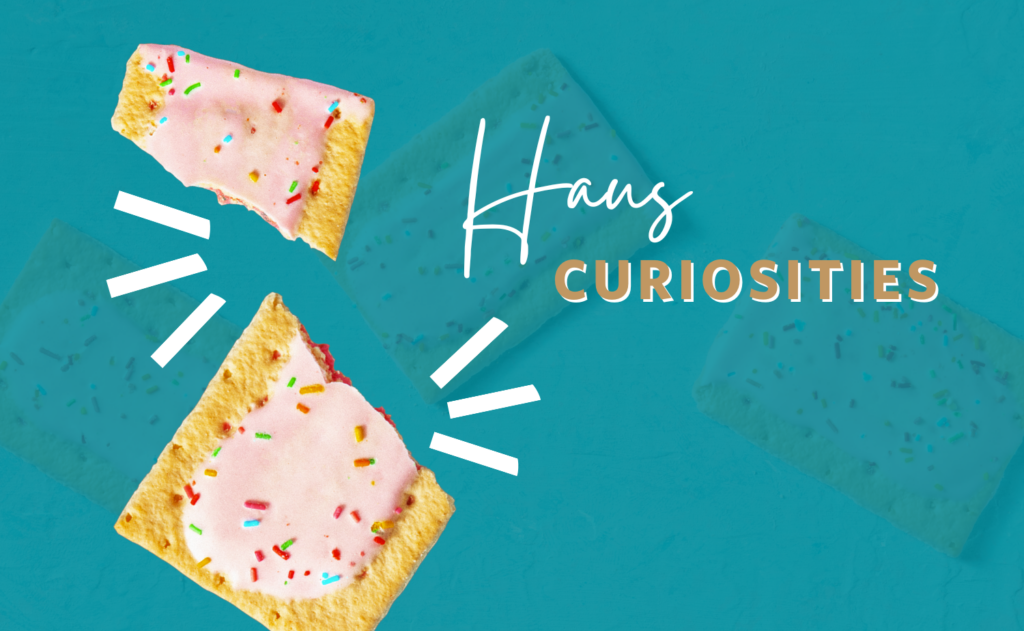When we received a year of the Wall Street Journal as a thoughtful gift for the year 2021, I never realized how much I would love looking for that italicized front page segment below the fold that includes some sort of fascinating human interest story.
In late October, I sent a picture of the headline to Lindsay and said, “We have to talk about this on the TealHaus blog.” Not that we have an opinion on Pop Tarts or any sort of stake in the latest slate of odd court cases … but because it is a curiosity that made us wonder. It made us muse on the importance of accurate branding and honesty.
Kellogg’s is currently being sued because the strawberry flavor of Pop-Tart, according to the Southern District of New York, contains more apples and pears than actual strawberry ingredients. They claim it is deceptive and misleading to label the pastry with the “strawberry” moniker and are asking for $5 million in relief.
According to the lawyer filing the suit, Spencer Sheehan, “Nobody’s saying that you expected to get everything from a strawberry. You’re not eating a fresh strawberry, obviously. But if you’re going to call it strawberry, you either ought to have all strawberries in there or just call it something else.”
So that brings us to a question: What offering does your business advertise that might be a stretch or could even be actually completely untrue? Is it a legacy offering you don’t have anymore? Or a gray area that sounds better when you leave it a little vague?
If Mr. Sheehan finds out about it, he might be coming for you.


